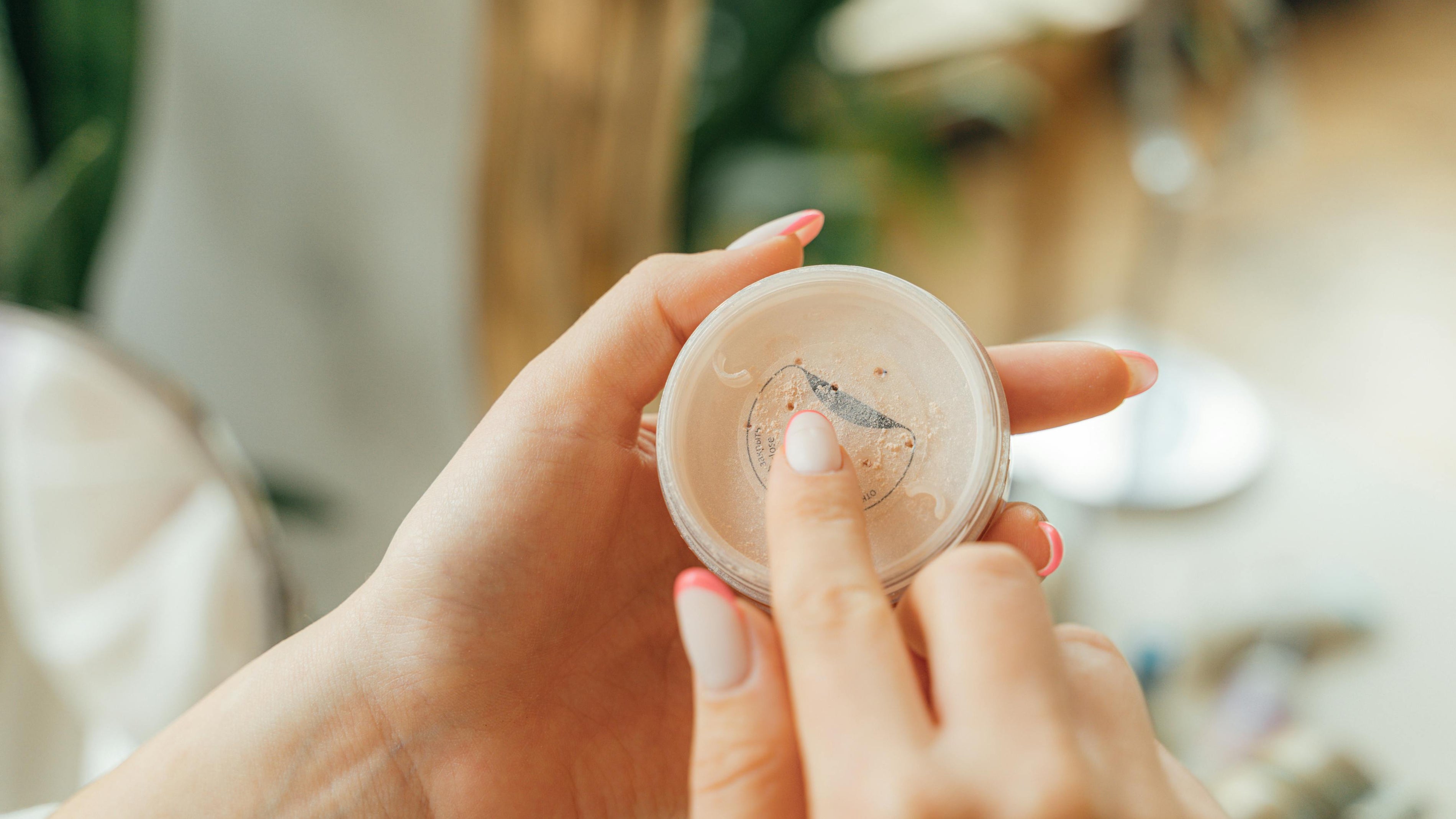This article exposes the potential for certain ingredients in common beauty products – including titanium dioxide, talc, parabens, phthalates, silicones, and chemical sunscreens – to accelerate skin aging and contribute to other health concerns. It encourages informed consumerism, urging readers to prioritize research and select brands committed to ultra-clean formulations.
Table of Contents
- Introduction: The Unseen Price of Beauty
- The Premature Aging Culprits: An Overview
- Titanium Dioxide: A Double-Edged Sword in Sun Protection?
- Talc: A Legacy of Asbestos and Its Impact on Skin Health
- Parabens & Phthalates: The Endocrine Disruptors and Collagen Degradation
- Silicones: The Illusion of Youth, The Reality of Barrier Disruption
- Chemical Sunscreens: Are They Aging You Faster Than the Sun?
- The Skin Microbiome: A Silent Victim of Conventional Cosmetics
- Clean Beauty as an Investment in Your Future Self
- Informed Choices: Empowering Your Skincare Journey
- Conclusion: Reclaiming Your Skin's Youthful Potential
Introduction: The Unseen Price of Beauty
We invest in high-quality skincare and makeup with the expectation of enhancing our beauty and preserving our youth. But what if some of the very products we rely on are inadvertently accelerating the aging process? The truth is, many conventional cosmetics contain ingredients that, while providing immediate aesthetic benefits, may be silently undermining our long-term skin health. This article delves into the science behind these hidden age accelerators and empowers you to make informed choices for a more youthful future.
The Premature Aging Culprits: An Overview
While factors like genetics, sun exposure, and lifestyle choices undoubtedly contribute to aging, the ingredients in our beauty products can also play a significant role. From disrupting the skin's natural barrier to triggering inflammation and interfering with hormone function, certain substances can accelerate collagen breakdown, increase oxidative stress, and ultimately lead to premature wrinkles, age spots, and loss of elasticity.
Titanium Dioxide: A Double-Edged Sword in Sun Protection?
Titanium dioxide (TiO2) is a widely used mineral UV filter in sunscreens and mineral makeup. While it effectively blocks harmful UV rays, concerns have emerged regarding its potential to generate free radicals, particularly in the presence of sunlight. These free radicals can damage DNA and accelerate skin aging.
A study published in *Toxicology Letters* found that TiO2 nanoparticles, upon UV irradiation, induced oxidative stress and DNA damage in human skin cells. The size and coating of TiO2 particles are crucial factors influencing their potential toxicity. Opting for non-nano TiO2 formulations, where the particles are larger and less likely to penetrate the skin, can mitigate some of these risks. It's a constant balancing act: sun protection is vital, but the choice of UV filter matters.
Talc: A Legacy of Asbestos and Its Impact on Skin Health
The potential for asbestos contamination in talc-based products is a well-documented concern. However, even asbestos-free talc can pose risks to skin health. Talc particles are incredibly small and can potentially clog pores, leading to inflammation and breakouts. Chronic inflammation is a known contributor to premature aging, as it triggers the breakdown of collagen and elastin.
Furthermore, some studies suggest a link between talc use and an increased risk of certain cancers, although the evidence is still debated. Given the potential risks, choosing talc-free alternatives is a prudent decision for those seeking to minimize their exposure to potentially harmful substances.
Parabens & Phthalates: The Endocrine Disruptors and Collagen Degradation
Parabens (e.g., methylparaben, propylparaben) and phthalates are synthetic chemicals commonly used as preservatives and fragrance ingredients, respectively. Their ability to disrupt the endocrine system is a significant concern, particularly in relation to premature aging.
These endocrine disruptors can mimic or interfere with the body's natural hormones, including estrogen. Estrogen plays a crucial role in maintaining collagen production, which is essential for skin elasticity and firmness. By disrupting estrogen levels, parabens and phthalates can indirectly contribute to collagen degradation and the development of wrinkles. The European Commission has restricted the use of certain parabens and phthalates in cosmetics due to safety concerns. The EWG Skin Deep database provides comprehensive information on the potential health risks associated with these chemicals.
Silicones: The Illusion of Youth, The Reality of Barrier Disruption
Silicones (e.g., dimethicone, cyclomethicone) create a smooth, silky texture in skincare and makeup, providing an immediate plumping and blurring effect. However, this temporary cosmetic benefit can come at the expense of long-term skin health.
Silicones form an occlusive barrier on the skin, trapping moisture and preventing the skin from breathing properly. This can disrupt the skin's natural exfoliation process, leading to a buildup of dead skin cells and a dull complexion. Furthermore, the occlusive nature of silicones can prevent other beneficial ingredients from penetrating the skin. Over time, this barrier disruption can weaken the skin's natural defenses and accelerate the aging process.
Chemical Sunscreens: Are They Aging You Faster Than the Sun?
Chemical sunscreens, containing ingredients like oxybenzone and octinoxate, work by absorbing UV radiation. While they provide sun protection, these chemicals can also trigger free radical formation and contribute to hormone disruption.
Oxybenzone, in particular, has been shown to exhibit estrogenic activity and can be absorbed into the bloodstream. Furthermore, some studies suggest that chemical sunscreen ingredients can degrade in sunlight, forming harmful byproducts that can damage skin cells. Mineral sunscreens, containing zinc oxide and titanium dioxide (in non-nano form), offer a safer and potentially more effective alternative, as they physically block UV radiation without the same potential for chemical reactions and hormone disruption.
The Skin Microbiome: A Silent Victim of Conventional Cosmetics
The skin microbiome is a complex ecosystem of bacteria, fungi, and viruses that live on our skin. This microbiome plays a vital role in maintaining skin health, protecting against pathogens, and regulating inflammation. Many conventional cosmetics contain ingredients that can disrupt the skin microbiome, leading to imbalances and accelerated aging.
Harsh cleansers, preservatives, and antibacterial agents can kill beneficial bacteria, weakening the skin's natural defenses and making it more susceptible to damage. A compromised microbiome can lead to inflammation, dryness, and increased sensitivity, all of which contribute to premature aging.
Clean Beauty as an Investment in Your Future Self
Choosing clean beauty products is not just about avoiding potentially harmful ingredients; it's about actively investing in the long-term health and vitality of your skin. By prioritizing formulations that are free from known irritants, endocrine disruptors, and potential carcinogens, you can minimize your exposure to factors that contribute to premature aging.
Informed Choices: Empowering Your Skincare Journey
The power to protect your skin lies in informed consumerism. Take the time to research the ingredients in your beauty products and understand their potential effects. Utilize resources like the EWG Skin Deep database, PubMed, and scientific journals to access reliable information. Don't be swayed by marketing hype; instead, focus on the ingredient list and choose products with minimal, recognizable ingredients.
Conclusion: Reclaiming Your Skin's Youthful Potential
The quest for youthful skin doesn't have to involve a trade-off with your health. By understanding the potential risks associated with certain ingredients and embracing clean beauty practices, you can reclaim your skin's youthful potential and invest in a healthier, more radiant future.
```

